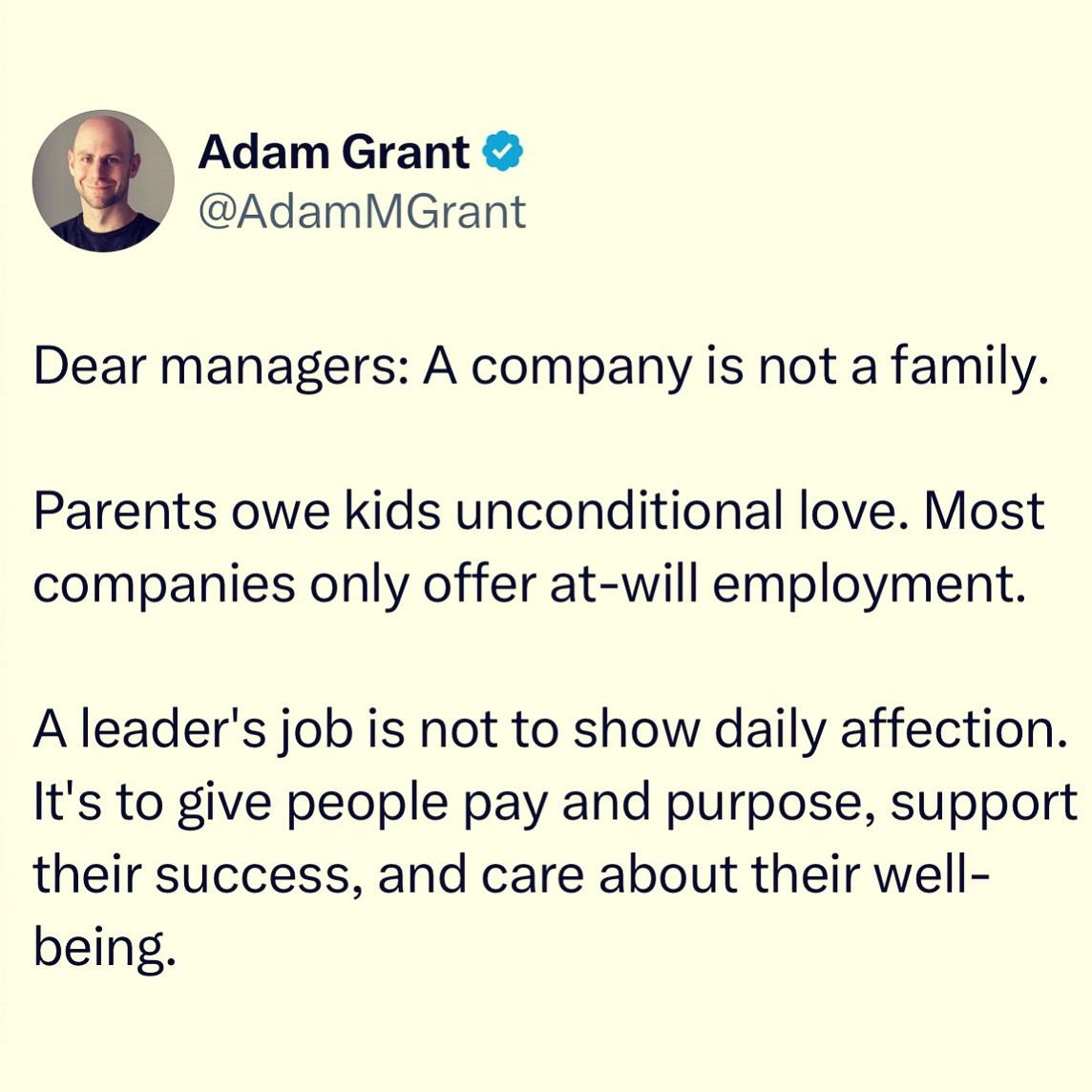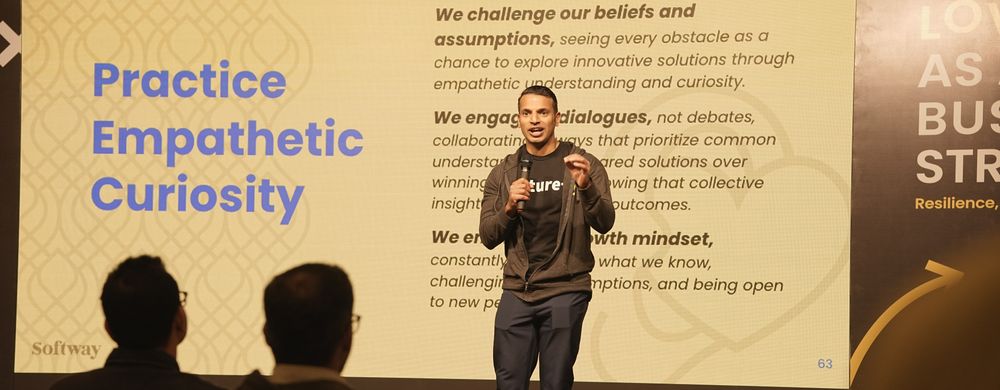A Company is Not a Family: Reflections on Workplace Dynamics
Recently, I came across a thought-provoking discussion between Adam Grant and Brian Chesky about why Brian stopped referring to Airbnb as a family and instead focused on leading with compassion during tough times. This resonated deeply with me and aligns with my own experiences in the workplace.

Since I started working full-time in 2017 right after college, I have always felt uneasy when companies use phrases like "Welcome to the family" or "We’re a family" in their communications, whether in emails, team chats, or meetings. To me, these statements felt artificial and impractical.
I never believed in the concept of a company as a family, not because I didn’t get along with my colleagues or didn’t form good relationships with them, but because the notion of a family holds a much higher and more sophisticated position in my life than a company ever could. A family is a place where ties are unbreakable, where you can never be fired no matter how poor your performance, and where you can never resign. It’s a place where performance metrics and KPIs don’t matter.
As someone who doesn’t call anyone brother or sister other than my actual siblings, I always address my best friends as my best buddies, not as brothers or sisters. This is because I believe words hold true meaning and shouldn’t be interchanged.
As we say at Softway, for me, a company is a high-performing team, not a family. You can love your colleagues, but it’s not romantic love; it’s tough love. It’s about honestly loving each other, holding each other accountable, and caring for each other for the larger vision. It’s about feeling psychologically safe to be vulnerable and bringing your complete self to work. It’s about practising emotional maturity.
My CEO, Mohammad Anwar, shared some insightful thoughts on this in his blog "My controversial decision to treat love as a business strategy". He emphasizes that "love as a business strategy elevates people to the first priority of strategy and business objectives" and that "by focusing on culture, we ensure that our teams are properly equipped and trained, they are motivated, and are given an earnest chance to succeed."
Anwar explains, "To us, it comes down to some basic tenets, like respect, empathy, and value... Love breaks the surface and gets down to the root. The level of intimacy created by love ensures that interactions are genuine, motives are pure, and selfish ambitions are put on a shelf."
He also highlights the importance of a culture-focused approach, quoting Peter Drucker, "Culture eats strategy for breakfast," and states, "When employees understand their true worth in a company, they will feel protected and empowered. They will trust their leaders to look out for their best interests—and in-turn they will bring their full selves to work, they’ll give their all, and they’ll be loyal."
These insights resonate deeply with my own experiences and beliefs. A company should be a place where tough love, accountability, and genuine care for each other’s well-being are practised, fostering a high-performing team rather than pretending to be a family.
In conclusion, while the notion of a company as a family might seem appealing, it is more practical and beneficial to view it as a high-performing team. This approach promotes a healthier work environment where employees feel valued, supported, and motivated to contribute their best. For more on this perspective, I encourage you to read Anwar’s full blog post: My controversial decision to treat love as a business strategy.




